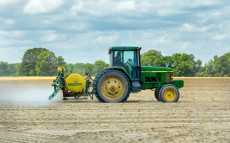- pathfindersAI
- Job Profile
Logging Equipment Operators
Summary
Logging Equipment Operators: Navigators of the Forest Industry
What They Do
Logging Equipment Operators are the unsung heroes of the forestry industry. These professional operators manage the heavy machinery used to harvest trees and transport them for processing. They work predominantly in the great outdoors, among towering trees and dense forests, employing their knowledge and skill to operate various types of logging equipment. From feller bunchers and skidders to log loaders and harvesters, Logging Equipment Operators ensure that the lumber harvesting process is efficient, safe, and environmentally sustainable.
Job Responsibilities
The day-to-day responsibilities of a Logging Equipment Operator are varied and intensive. Operators must correctly assess and plan their work area to avoid environmental harm and ensure maximum yield. They use specific types of machinery to fell, delimb, and cut trees into logs of appropriate lengths. Additionally, they handle the transportation of logs from the cutting site to loading areas, ensuring the safe transfer of a valuable natural resource. Routine maintenance and minor repairs of the machinery are also part of the job, requiring mechanical proficiency and attention to detail. Monitoring the safety of themselves and their coworkers, adhering to legal and environmental regulations, and reporting any workplace hazards are all integral components of their responsibilities.
Essential Skills
Successful Logging Equipment Operators must have a unique blend of technical, physical, and cognitive skills. Precision and coordination are paramount, as maneuvering large machinery in a densely forested area demands impeccable control. Mechanical aptitude is imperative, as the job often involves troubleshooting and repairing equipment. Physical stamina and strength are also vital, given the demanding nature of outdoor work and the rigorous handling of machinery. Additionally, operators must possess analytical skills to evaluate their work environment, recognize potential hazards, and strategize operational plans. Communication skills are essential for coordinating with teammates and ensuring a smooth workflow.
Educational Pathways
While a formal college degree is not typically required to become a Logging Equipment Operator, education and training are crucial for success in this field. Many operators obtain a high school diploma or equivalent, followed by specialized training programs available at technical schools or community colleges. These programs often cover subjects such as forestry principles, machinery operation, safety standards, and environmental regulations. On-the-job training is quite prevalent, with new operators learning from seasoned professionals in apprenticeship-like settings. In some instances, obtaining certification through recognized industry bodies can further enhance career prospects and demonstrate a commitment to safety and professionalism.
Career Prospects
The demand for Logging Equipment Operators remains steady, driven by the continued need for timber and wood products essential to numerous industries, including construction, paper production, and furniture manufacturing. Employment opportunities are commonly found within logging companies, sawmills, and wood processing plants, as well as within government forestry agencies. Career advancement can lead to supervisory or managerial positions within logging operations, as well as roles in equipment sales and maintenance. Geographic mobility can greatly expand job prospects, particularly in regions where forestry and logging activities are prominent.
Conclusion
In conclusion, Logging Equipment Operators play a crucial role in the forestry industry, balancing the demands of productivity with the imperatives of safety and environmental stewardship. Their expertise in operating complex machinery in challenging conditions ensures that forests are harvested sustainably and efficiently. With opportunities for growth and a pathway that emphasizes practical training and mechanical skills, a career as a Logging Equipment Operator promises both fulfillment and stability in a field critical to numerous aspects of daily life. For those with a passion for working outdoors and a knack for machinery, this career offers a blend of physical activity, technical challenge, and the reward of contributing to an essential industry.
Video
Compensation
| State | Median Salary | Median Hourly | Positions |
|---|---|---|---|
| AL | 47,960 | 23.06 | 1,830 |
| AK | 60,350 | 29.02 | 60 |
| AZ | 50,750 | 24.40 | 50 |
| AR | 46,120 | 22.17 | 1,000 |
| CA | 60,360 | 29.02 | 1,000 |
| CO | 47,060 | 22.63 | 100 |
| FL | 45,500 | 21.87 | 930 |
| GA | 48,480 | 23.31 | 1,960 |
| ID | 62,250 | 29.93 | 440 |
| IL | 46,400 | 22.31 | 120 |
| IN | 46,430 | 22.32 | 230 |
| IA | 58,200 | 27.98 | 30 |
| KY | 30,080 | 14.46 | 270 |
| LA | 52,050 | 25.02 | 1,000 |
| ME | 45,330 | 21.79 | 940 |
| MD | 47,710 | 22.94 | 70 |
| MI | 44,720 | 21.50 | 780 |
| MN | 45,760 | 22.00 | 240 |
| MS | 46,310 | 22.27 | 1,250 |
| MO | 36,360 | 17.48 | 200 |
| MT | 50,360 | 24.21 | 240 |
| NH | 46,900 | 22.55 | 200 |
| NY | 38,940 | 18.72 | 460 |
| NC | 41,400 | 19.90 | 1,530 |
| OH | 41,600 | 20.00 | 260 |
| OK | 36,750 | 17.67 | 140 |
| OR | 61,160 | 29.41 | 1,820 |
| PA | 44,970 | 21.62 | 390 |
| SC | 44,990 | 21.63 | 1,140 |
| SD | 55,610 | 26.73 | 60 |
| TN | 41,880 | 20.14 | 560 |
| TX | 49,640 | 23.87 | 760 |
| VT | 46,950 | 22.57 | 120 |
| VA | 46,490 | 22.35 | 790 |
| WA | 65,520 | 31.50 | 1,450 |
| WV | 33,400 | 16.06 | 570 |
| WI | 45,640 | 21.94 | 380 |
Similar Occupations
In this area you will find other occupations that are close to the one you were viewing in tasks, knowledge and work environment. If the primary job profile you are viewing isn't quite to your liking, take a look around and see what else is available.
Basic and Premium Accounts have more alternative occupations available than the Free account.

Agricultural Equipment Operators - 45-2091.00
Agricultural Equipment Operators are responsible for driving and controlling farm equipment such as tractors, harvesters, and irrigation machines to plant, cultivate, and harvest crops. They perform routine maintenance on machinery, ensuring it functions efficiently to maximize farm productivity.
-
$39,690/yr
Median Pay -
28,910
Number of Jobs

Continuous Mining Machine Operators - 47-5041.00
A Continuous Mining Machine Operator operates specialized machinery to extract coal, ore, or other materials from an underground or surface mine. They ensure the continuous and efficient removal of resources while maintaining a safe working environment.
-
$61,420/yr
Median Pay -
15,700
Number of Jobs